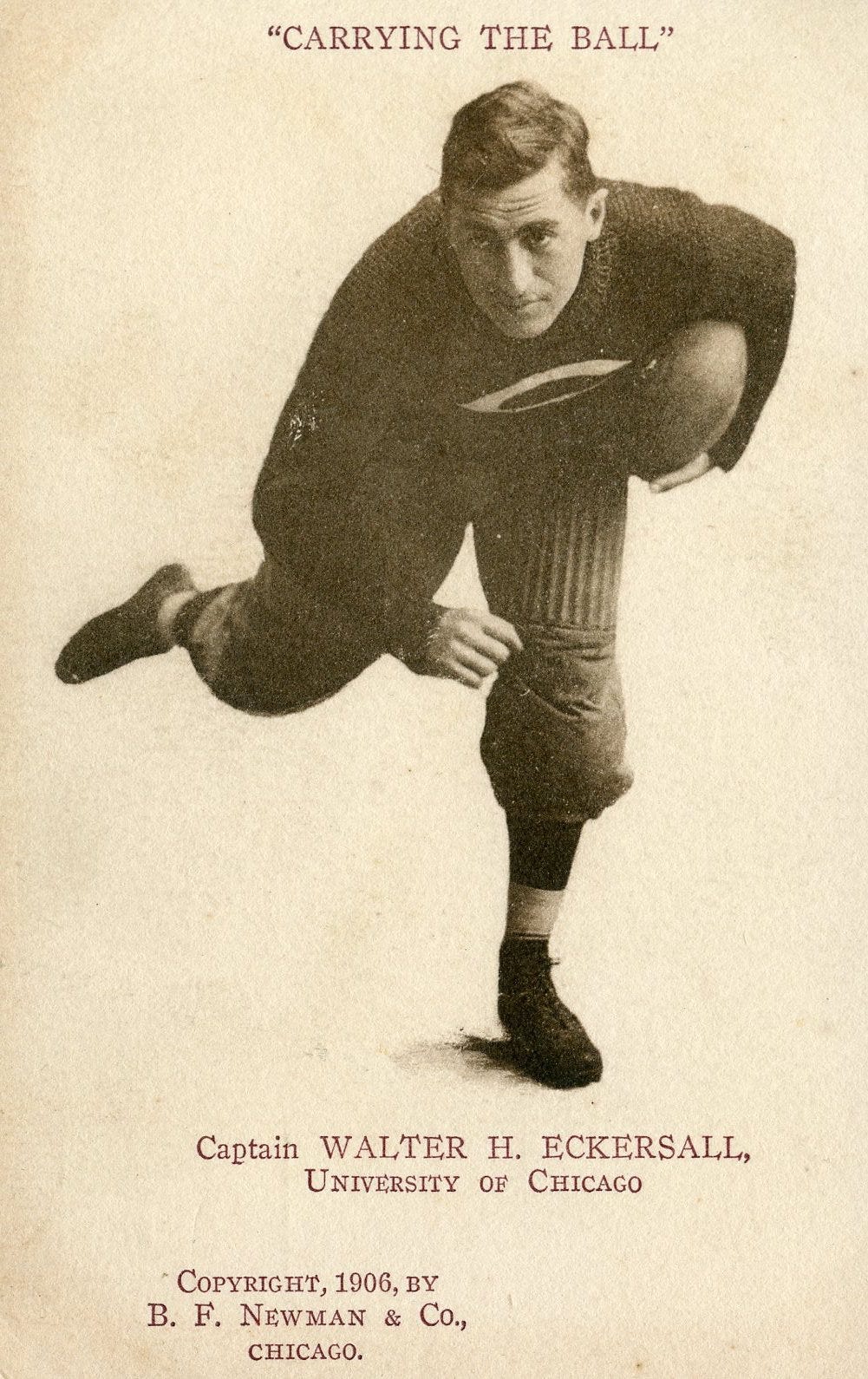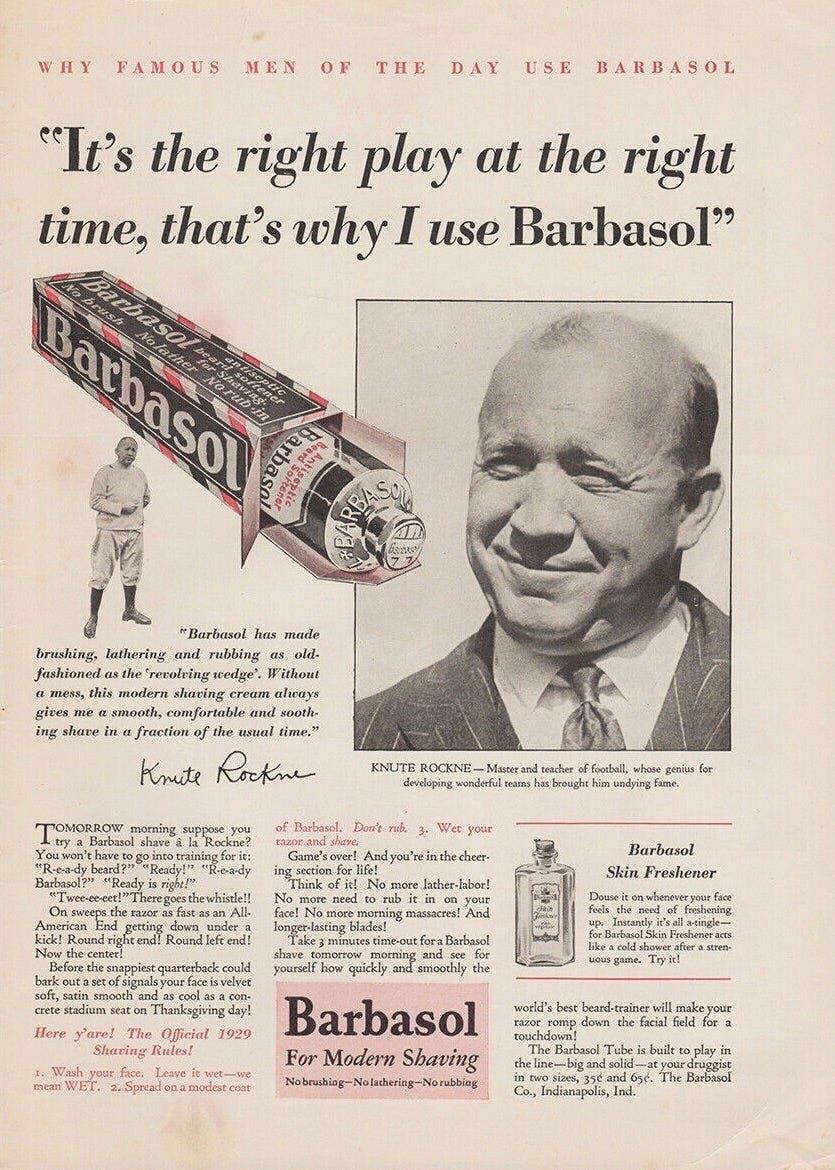Today's Tidbit... When Coaches Wrote Newspaper Columns
Nowadays, we often see top football coaches playing television studio commentators following their teams' elimination from the playoffs. Their technical knowledge and perspective as the person in charge can offer unique insights into a game's events.
However, while their teams are still playing, coaches stick to their knitting, stay out of the studios, and certainly do not write newspaper columns predicting who will win upcoming games. Others in the football business do the same. Coaches coach, officials officiate, and reporters report. Everyone stays in their lane.
But that is not how things used to be, especially before radio and television gave coaches a public voice or face. Football heroes often played dual roles back in the day. Take, for example, Walter Eckersall, an All-American halfback at Chicago turned Chicago Tribune reporter who regularly officiated the biggest games of the year, including multiple Rose Bowls and the 1926 Army-Navy game in Chicago. Yet, as a reporter, he predicted the outcomes of games and published stories the next day detailing the battles he officiated.

Several newspaper syndicates in the 1920s and 1930s created panels with coaches from each region of the country to summarize their area's top football stories and make predictions each week. For example, in 1925, one syndicated panel had an exceedingly strong set of coaches, including John Wilce (Ohio State), Charles Daly (West Point), C. L. Brewer (Missouri), Andy Smith (Cal), Herman Stegeman (Georgia), and John Heisman (Rice). Ten years later, the Central Press Association empaneled Harry Stuhldreher (Villanova), Clark Shaughnessy (Chicago), Harry Mehre (Georgia), and Babe Hollingberry (Washington State), further illustrating that these arrangements were common.
Of course, no one played the commercial and prediction game better than Knute Rockne. Our favorite Norwegian promoted Wilson sporting goods, Barbasol shaving cream, and Studebaker automobiles, while also writing columns predicting the outcome of several dozen games per week without having seen most teams play (or had access to their film).
Perhaps Rock's most famous predictions came in late November 1926, when he published a position-by-position comparison before the Army-Navy at Chicago's Soldier Field, which Eckersall officiated. Rockne called the teams even though he gave a slight nod to Army.

He then went on to say the following about the Notre Dame-Carnegie Tech game played the same day:
Notre Dame plays Carnegie (sic) tech at Pittsburgh also Saturday. Carnegie tech has the best team in its history and it is not without the bound of possibilities that they may surprise Notre Dame. Notre Dame has gone through a terrific schedule and is beginning to weaken which is only human.
Christy Welch Syndicate, Rockne, Knute, 'Rockne Analyzes Elevens,' Tacoma Daily Ledger, November 27, 1926.
Rockne proved an effective prognosticator. Army and Navy battled to a 21-21 tie in a game Rockne witnessed because he did not travel with his team that week. Unfortunately, the 8-0 Domers, who had given up only seven points all season, gave up nineteen to Carnegie Tech and failed to score themselves, recording their only loss of the season. A victory over USC in Los Angeles the following week left them 9-1 and with a bad taste in their mouths.
Football Archaeology is reader-supported. Click here to buy one of my books or otherwise support the site.



Great story, Bud, and it is good to know that you have changed history, at least as far as SMU's records of it are concerned.
Rockne was only one of the members of the stable of Christy Walsh, who syndicated to newspapers not only top athletes and coaches but also celebrities of all kinds. Walsh was kind of an early version of the Hollywood packager and was almost as famous as his clients. Another thing that was interesting was the way Rockne, like many famous coaches in those times, felt free to skip his own team's game! Can you imagine Nick Saban missing a Crimson Tide game to take in Florida-Georgia? Finally...you gotta admit that Barbasol really gave the Rock an exceedingly clean all-over shave!